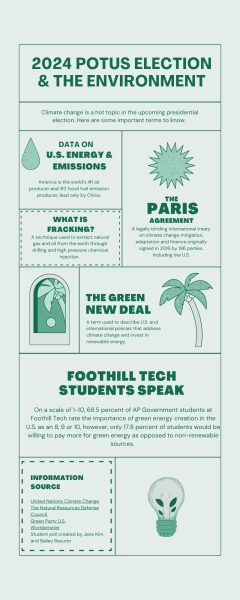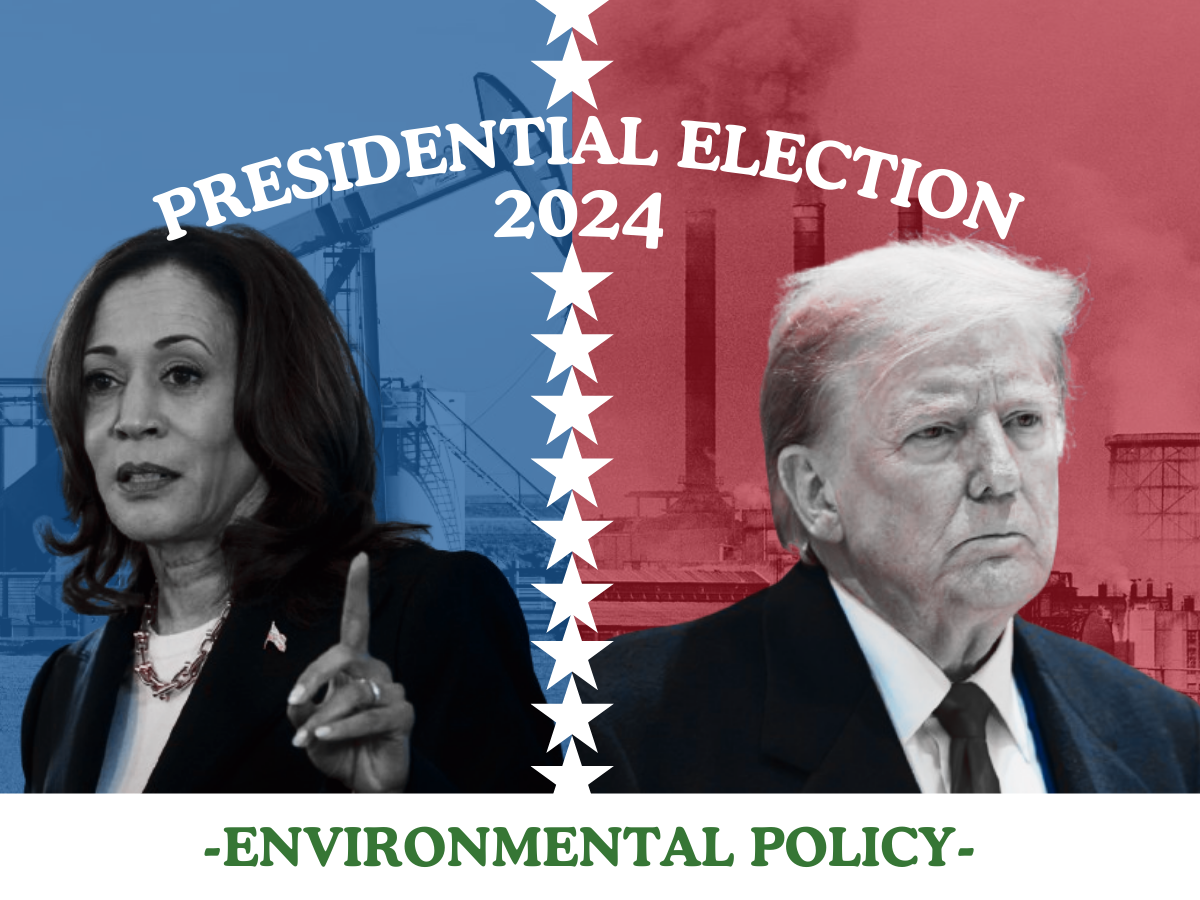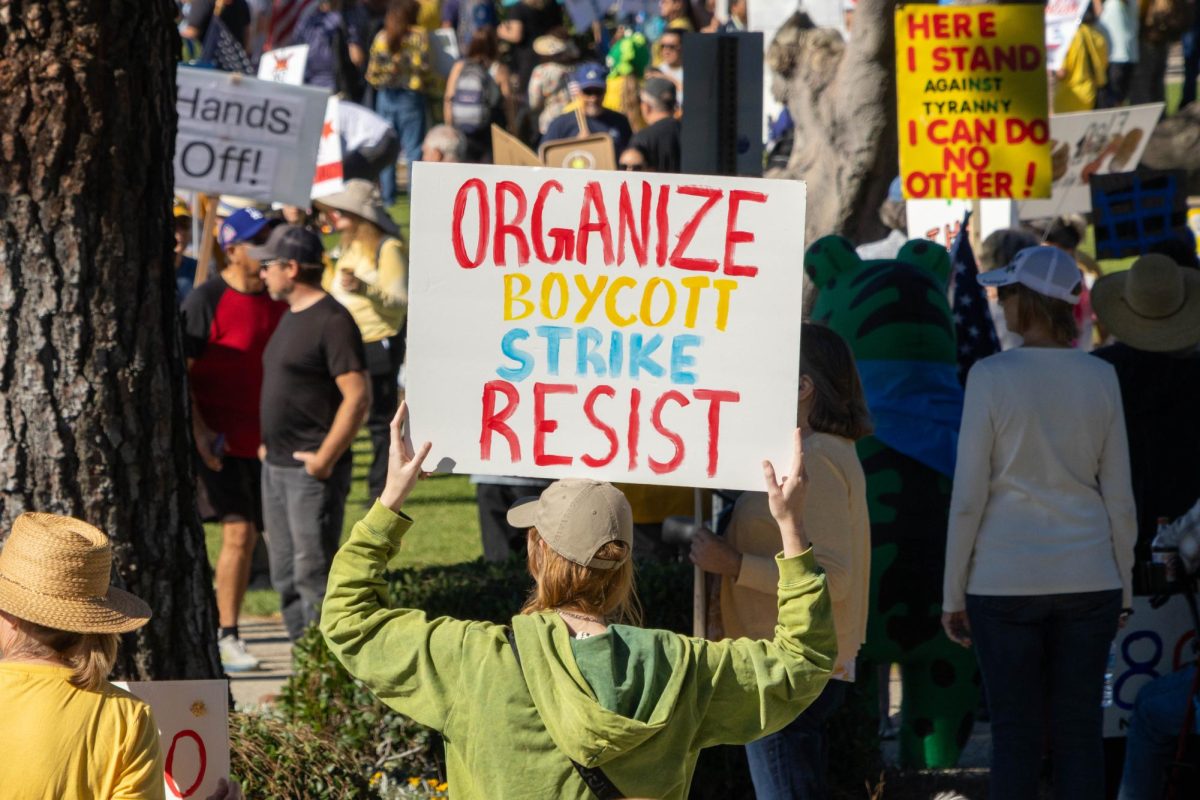Vice President Kamala Harris and former President Donald Trump, the two main U.S. 2024 presidential candidates, have expressed vastly different ideologies regarding climate change, environmental policy and renewable energy. America is second only to China as the world’s largest sources of greenhouse gasses, so November’s election results will greatly influence the trajectory of energy production and climate change mitigation in the coming years.
Kamala Harris (D)
Harris has long championed environmental initiatives. As California Attorney General, she took on Big Oil numerous times and blocked an Obama administration plan to expand fracking to the Pacific Ocean. Currently, Harris and the Democratic Party refer to climate change as a “global emergency” and have committed to helping America reach net zero emissions no later than 2050 through policy programs like the Green New Deal and international treaties such as the Paris Clean Energy Agreement.
As vice president in 2022, Harris cast the tie breaking vote for the largest environmental investment in U.S. history: The Biden administration’s Inflation Reduction Act (IRA). By allocating billions of dollars to take on the climate crisis, the IRA reduced renewable energy costs nationwide. Scientists predict the policy will reduce U.S. greenhouse gas emissions by approximately 40% by 2030, which is a vast stride towards the Democratic party’s goal of net zero emissions.

Harris also helped the Biden administration create the Office of Environmental Justice and External Civil Rights, which will provide aid to disadvantaged communities impacted by climate change. Although the new office is outfitted with staff members and resources, President Joe Biden has not yet assigned a Senate-confirmed leader to the program. If elected, Harris is expected to complete this task early on in her term.
More recently in her presidential campaign, Harris has taken a slightly more conservative environmental policy position, the most notable of which being her shifting opinion on hydraulic fracturing, or fracking.
Fracking is a method of natural gas extraction that emits greenhouse gases and contributes to air and water pollution. Consequently, fracking exacerbates climate change and threatens surrounding plant and animal populations.
Although Harris supported a national fracking ban during her 2019 presidential campaign, in a recent interview with CNN she remarked, “We can increase a clean energy economy without banning fracking.” She also made this intention clear during her last debate with Trump.
Despite this recent fracking opinion development, many national environmental organizations, including the League of Conservation Voters, Clean Energy for American Action and the Sierra Club, have endorsed Harris’ presidential campaign. “The Biden-Harris administration has done far more to address the climate crisis and environmental injustice than any administration in our nation’s history,” the Sierra Club report stated, suggesting that Harris’ past political involvements have earned her the trust and support of climate-focused voters.
This may include 68.5% of Advanced Placement U.S. Government (AP Gov) students at Foothill Technology High School (Foothill Tech) who rated the importance of domestic green energy investment as an 8, 9 or 10 out of 10.
Donald Trump (R)
Trump’s opinions and policies concerning climate change starkly contrast those of Harris. He has repeatedly referred to the Green New Deal as the “Green New Scam” and overturned an estimated 100 environmental regulations during his time as president. However, the Trump campaign emphasizes that during the former president’s last term, jobs were created, energy was reliable and U.S. carbon emissions declined.
Also as president, Trump pulled the U.S. out of the Paris Agreement due to “the unfair economic burden imposed on American workers, businesses, and taxpayers by U.S. pledges made under the Agreement,” according to the U.S. Department of State. Although Biden signed the papers to re-join the treaty on his first day of office in 2020, if Trump is elected in November, it is predicted that he will withdraw the U.S. yet again.
Trump’s presidential campaign is largely centered around restoring America’s energy independence, as detailed in his Agenda47 plan. To do this, Trump is planning to invest in fossil fuel based energy production, as expressed by his token phrase:“Drill Baby Drill”.
Notably, only 17.8% of AP Gov students at Foothill Tech would be willing to pay more for green energy as opposed to non-renewable sources, and Trump’s promises may appeal to voters who would prefer lower energy costs regardless of source.
Trump also vows to “stop the wave of frivolous litigation from environmental extremists,” as stated in Agenda47. In essence, Trump does not acknowledge climate change as a prominent threat to the U.S., as he is primarily focused on “America first” industrial policy through expansion of non-renewable domestic energy production.










